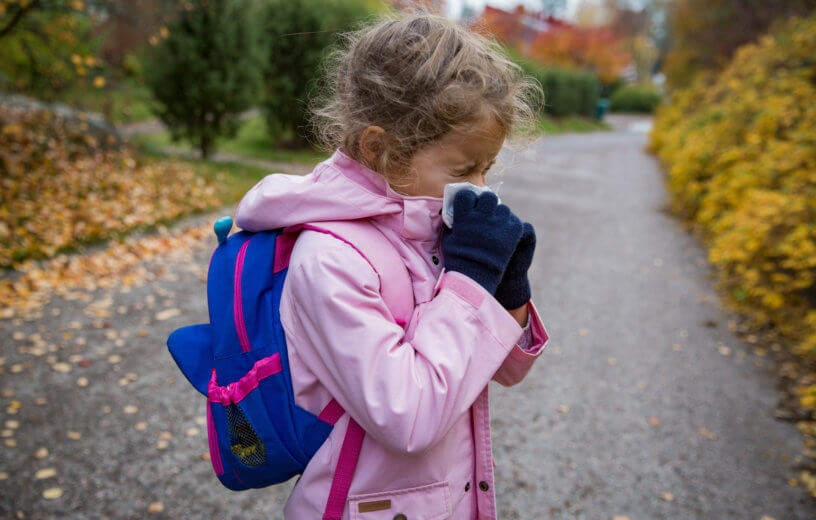SOLNA, Sweden — Should parents shield their children from all forms of dirt, germs, and bacteria? Although one popular theory encourages parents to build their child’s immune system by having germs around to challenge young kids, researchers in Sweden argue that this strategy doesn’t actually work at all.
The hygiene hypothesis states that it’s actually a good idea to expose youngsters to a few microbes early in life, as encountering various micro-organisms helps promote a more robust immune system and protects against allergies. Conversely, the hypothesis states that living a sheltered life free of germs can lead to a weaker immune system.
Now, researchers from the Karolinska Institutet are challenging the hygiene hypothesis. According to their experiments with mice, animals with highly infectious exposures from birth showed the same, if not greater, ability to develop allergic immune responses compared to “clean” laboratory mice. Simply put, mice that encounter allergens as pups had the same or worse allergy problems as mice living in a clean environment.
The larger scientific research topic of how precisely microbes may prevent allergy has been a subject of major interest in recent years. Earlier studies have indicated some infections can reduce the production of inflammatory antibodies to allergens and alter the behavior of T cells linked to allergies. Some research also suggests that good bacteria in our intestines may have the capacity to switch off inflammation in other bodily areas.
This latest project compared the allergic immune response in “dirty” wildling mice to those of typical “clean” mice living in a lab setting. Very little notable evidence was gathered pointing to the antibody response being altered or the function of T cells changing in any meaningful way. Additionally, anti-inflammatory responses evoked by good gut bacteria did not appear capable of turning off allergic immune responses. In fact, wilding mice actually tended to develop clear signs of pathological inflammation and allergic responses upon exposure to allergens.
“This was a little unexpected but suggests that it’s not as simple as saying, ‘dirty lifestyles will stop allergies while clean lifestyles may set them off’. There are probably very specific contexts where this is true, but it is perhaps not a general rule,” says Jonathan Coquet, co-author of the study and Associate Professor in the Department of Microbiology, Tumor and Cell Biology at the Karolinska Institutet, in a media release.

The wildling mice were genetically identical to the clean laboratory mice but were housed under “semi-natural” conditions and had rich microbial exposures from birth.
“The immune systems of wildling mice better represent the human immune system and so we hope that they can bring us closer to the truth of how microbes act upon the body,” notes Prof. Coquet.
All in all, this work contributes mightily to science’s general understanding of how allergies may arise and hold clinical implications. Across clinical trial settings, researchers and clinicians have made recent attempts to treat patients suffering from inflammatory diseases with experimental infections. For example, both feeding people with worms and fecal transplants have been proposed as possible tools for combatting inflammatory diseases. Such ideas may sound outlandish, but newborns delivered via C-section have been given maternal fecal transplantation and bacterial supplementation as a way to promote good bacteria in the baby’s gut and the child’s future overall health.
“This field of research can provide important insights into how infections and microbes can be used to facilitate health, but it is still in its infancy. Our study is a reminder that general and broad exposures to microbes may not have the clear beneficial effects that we wish them to have,” concludes Susanne Nylén, co-author of the study and Associate Professor at the Department of Microbiology, Tumor and Cell Biology at the Karolinska Institutet.
The study is published in the journal Science Immunology.

I did not know that allergies were caused by germs? I thought it was a bodies reaction to an irritant that causes a reaction (big or small).